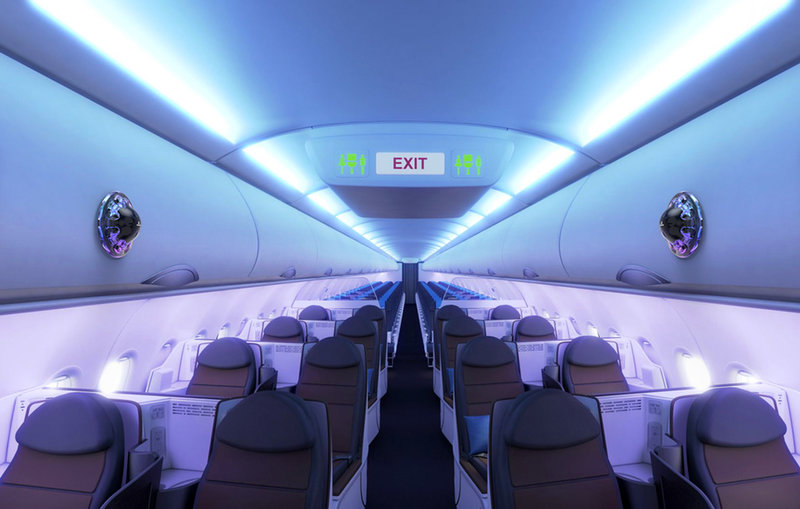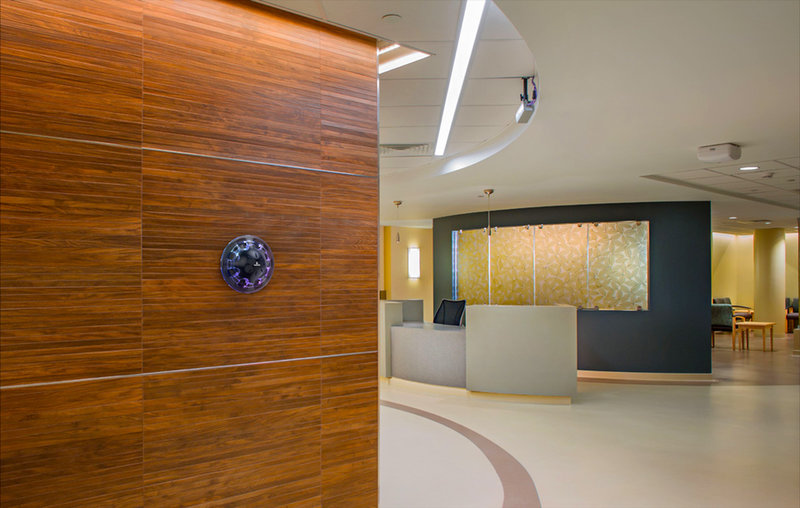Security
Could a new robot replace sniffer dogs at airport security?
Sniffer dogs are an important layer of security in the airport environment, helping personnel to detect the presence of explosives, drugs, electronics or invasive species. Now, US-based start-up Koniku has developed what it is calling a ‘dog on a chip’, which could offer a more reliable solution than its canine counterpart. Luke Christou reports.
Image: copyright
Faced with invasive screening measures, questioning, and pat downs, navigating airport security can be an uncomfortable and intimidating experience for passengers. A past study by airport lounge access provider Priority Pass found that passing through security is the second most stressful part of air travel, causing anxiety for more than 40% of travellers before they arrive at the airport.
While security is a necessary part of air travel, Koniku, a California-based biotechnology start-up, offers a solution that would help to make airport security less intrusive.
The Konikore is a high-tech sensor made by fusing neurons with silicon chips to process and classify particular odours. Capable of detecting more than 4,000 compounds, the iPad-sized device can be trained to recognise a range of scents, from explosive chemicals to pathogens, in a matter of seconds.
“The technology concept is quite straightforward, though the technology that builds it is non-trivial,” Koniku CEO Osh Agabi explains. “We genetically modify cells to express proteins which allow them to catch small molecules in the air and tell us what those small molecules are.”
Should the device identify a suspicious odour, the device lights up to alert staff, offering a non-invasive way to detect threats in the airport environment.
“A dog on a chip”
Sniffer dogs are an important layer of security in the airport environment, helping personnel to detect the presence of threats such as explosives, drugs, electronics, or invasive species. Describing the Konikore as a ‘dog on a chip’, Agabi believes that the technology can offer a more constant solution to its canine counterpart.
“We compare well with the canine in terms of performance,” Agabi says. “The Konikore is more constant. You can network hundreds of Konikores in an internet of things (IoT) play that gives you constant data flow on threats that might threaten the integrity of your sterile space.”
Sniffer dogs are also prone to producing false positives
Scale is one of the device’s key selling points. While canines offer one of nature’s most powerful smell sensors, up to 40 times more powerful than the human nose, training a sniffer dog is by no means an easy process. Not only does it take time to select suitable dogs, but those selected, as well as their handlers, are required to undergo vigorous training before they can be deployed.
Likewise, sniffer dogs are also prone to producing false positives as a result of previous contact, with suspicious scents and fatigue resulting in inaccurate detections. Past studies looking at stops for drug possession, for instance, show that sniffer dog indications may be wrong up to 88% of the time.
Then there’s the issue of housing, taking care of, and cleaning up after a large number of animals — a problem that a technological solution removes.

The Konikore is capable of detecting pathogens, offering a possible alternative to mass Covid-19 testing. Credit: Koniku
Sniffing out Covid-19
Konikore’s obvious application in the airport environment is to detect the presence of explosives. However, Agabi believes airports and airlines should be looking beyond this traditional threat in the wake of Covid-19.
“These threats post-Covid-19 are not only explosive, but we must begin to consider every human person entering a shared space as a potential bio-weapon,” Agabi insists.
The Konikore device can be programmed to detect pathogens, which could be used to detect the presence of viruses such as coronavirus among passengers. Small-scale internal trials have already been carried out, demonstrating that the sensor can accurately detect the presence of influenza A.
We must begin to consider every human person entering a shared space as a potential bio-weapon
The start-up has hired biotech consulting company Treximo to trial the use of Konikore for Covid-19 and expects it will be ready to apply with the Food and Drug Administration (FDA) for emergency-use authorisation in Q1 2021.
Airports are already considering the use of sniffer dogs as an alternative to mass Covid-19 screenings. At Helsinki Airport, four sniffer dogs are being used to detect the virus among passengers as part of a state-funded pilot scheme. According to researchers from the University of Helsinki who are overseeing the trial, the dogs have been able to detect Covid-19 with close to 100% accuracy, even days before the patient shows symptoms.
Cost, however, could pose a stumbling block for the widespread use of detection dogs. The trial, which will last four months, is expected to cost €300,000, or €75,000 per dog. In contrast, the cost of Koniku’s prototype device is estimated at $3,000 (€2,500).

Koniku’s Konikore sensors could offer security throughout the airport, from outdoor drop-off points to onboard the aircraft. Credit: Koniku
Deploying Koniku in the airport environment
Koniku believes that a ‘convenient, contactless, concealed & continuous’ future is in reach. Assisted by Konikore sensors, Agabi hopes that airports will be able to maintain the safety of passengers, staff and infrastructure without the need for extensive scanning or intrusive searches in the ‘medium term’.
“We believe that, with the Konikore, the goal of walking from the curbside to aircraft without having to divest your belongings or go through an intrusive search is genuinely within reach in the medium term.”
Additional sensors inside the premises would provide an additional concealed layer of security
Koniku envisions future airport security processes that begin at the curbside through pervasive, concealed sensors that can detect a threat before the traveller enters the airport environment. Additional sensors inside the premises would provide an additional concealed layer of security, offering security staff a tactical edge over offenders and guests a stress-free departure. Likewise, sensors installed on walkways or inside aircraft could serve as a last line of defence.
Such a device holds significant potential for airport operators that, for some time, have been exploring ways to improve the guest experience without compromising safety, from largely unsuccessful puffer machines to more modern, promising artificial intelligence-powered security systems.

Trials, organised by Koniku and Airbus, are getting underway at Singapore’s Changi Airport. Credit: DerekTeo/Shutterstock
Airport testing is underway
There has been some scepticism from members of the scientific community, largely due to the fragility of living cells and the struggles of those that have previously promised ‘electronic nose’ devices.
However, Koniku is confident that it can deliver: “We will deliver because we have tested it and we have the data,” Agabi insists. “But there is still work to do in collaboration with the right partners, the right model airports to put such a solution on the table.”
Koniku has attracted the backing of investors such as investment giant SoftBank and leading aerospace company Airbus, which is a promising sign. Likewise, trials are already underway, in collaboration with Airbus, to test the Konikore suitability for use in airports.
There is still work to do in collaboration with the right partners
In October, Airbus confirmed that it had successfully carried out tests alongside US law enforcement that showed the sensors were accurately able to detect explosives, “outperforming existing systems used in security threat detection”.
The sensors will now be field tested at Changi Airport, Singapore, followed by San Francisco International Airport, US. Koniku says that it is already shipping a limited number of devices to technology integrators, with more shipments to select partners and developers scheduled in 2021.
As the air travel industry struggles to cope with falling passenger numbers as a result of the pandemic, the Konikore offers some hope. If the technology gets off the ground, it holds potential to improve health and safety measures, ease passenger fears, and reduce one of air travel’s biggest stresses, all while maintaining necessary safety and security in the airport environment.